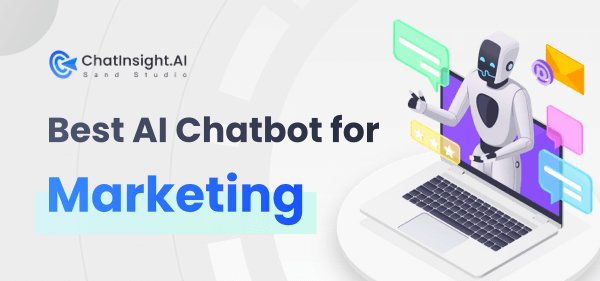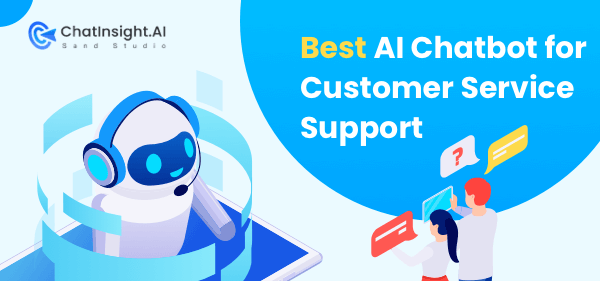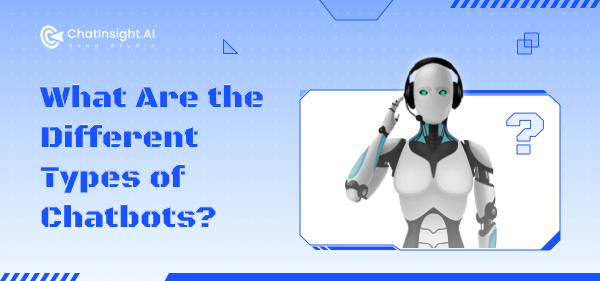Chatbot for Lawyers: Legal Chatbots Guideline
The evolution of chatbots has been nothing short of revolutionary in the last years in different spheres of business. This technology has been widely accepted by businesses to improve customer relations and efficiency. One important trend is the growing inclusion of chatbots for different industries and how it change how companies relate with their customers.
A notable issue has risen within the legal framework – the advent of AI chatbots specifically designed for lawyers. This is not just a technological advancement; it is a strategic way of dealing with the complicacies of the legal sector. With more legal professionals embracing AI-based solutions, the approach is moving towards a more accessible, efficient, and technology-driven environment. We shall now take a look at the complexities associated with legal chatbots and the changes they are bringing in the legal sector.
1What Is A Legal Chatbot?
The legal chatbot represents a technological breakthrough, using artificial intelligence to provide users with much-needed legal information and assistance through text chat. Think about having a virtual assistant ready to deal with numerous legal questions.
With huge legal databases built in, these chatbots represent digital stores of knowledge on the law. Legal AI chatbots have great ranges from decoding legal definitions to complex matters such as contract review and compliance.
Legal chatbots operate in the form of interactive AI programs to give legal information, advice, and assistance fluently. These intelligent bots provide a simple conversation with users who seek legal advice, explain complex legal jargon, and provide a guide to various legal procedures.
Complex machine learning algorithms carefully design these chatbots to filter thousands of law databases and case laws. This helps them to provide accurate and relevant information, which makes legal assistance more accessible, especially for the poor. They play an important role in increasing access to justice as they cater for a diverse group in society, like the poor and small and medium enterprises who may not be able to afford legal representation.
Nonetheless, as legal chatbots become more prevalent, certain challenges will have to be overcome to guarantee the accuracy and reliability of the information given. It is important to carefully think through the questions of data privacy, security, and accuracy of these digital assistants in order to unleash their full potential to expand the accessibility and affordability of legal assistance.
2How Do Chatbot Lawyer Work?
Have you ever wondered how a chatbot lawyer gets through the challenging waters in legal matters? Let’s unwind the complex procedure these digital legal assistants go through to give consumers helpful information and guidance.
Gathering Crucial Information
The start of the process is information gathering when a user interacts with a legal chatbot. The chatbot asks questions about the nature of their legal problem, their location, and other essential information. For instance, if a user discloses trouble with a traffic ticket, the chatbot asks for more details, such as location, time, and type of offense.
Processing User Inputs
The chatbot collects user inputs and proceeds to a more subtle task of processing the data obtained. It uses advanced machine learning techniques to understand the subtlety of the users’ legal concerns that precede the next steps.
Seeking Applicable Responses
Armed with insights, the chatbot starts to scan through its database or knowledge base. It searches relevant legal information based on the laws, regulations, and case precedents. Such meticulous search is undertaken to ensure that appropriate advice or guidance aligns with the unique legal scenario.
Providing Informed Direction
The chatbot then uses this virtual knowledge to offer the user information that is relevant to it. This might entail outlining a course, giving legal papers, or pointing the user to relevant resources or services. For example, in the context of a traffic ticket, the chatbot could specify actions to challenge the ticket or detail applicable traffic rules.
Guiding to Legal Expertise
Knowing its limits, if the case exceeds the chatbot’s competencies, it is accountable and directs the user to a competent attendant. This helps users with intricate or specialized legal issues to be assisted with specific services. Chatbot lawyers, therefore, appear as digital allies offering easy-to-understand and applicable legal assistance to many users.
3Benefits of using a Chatbot in the Legal Industry
With the adoption of chatbot lawyers by legal professionals and the general public, a host of tangible benefits will come into play, revolutionizing the legal industry.
Benefits for Lawyers:
Increased Productivity: Chatbot lawyers become indispensable assistants for lawyers, increasing their level of productivity and enabling attorneys to concentrate on complicated matters and strategies.
Cost-Effective Solutions: Legal practices can use chatbot lawyers as a way of cost-effective utilization. Repetitive task automation lowers operational costs, and this, in turn, makes legal services accessible but of high quality.
In-Depth Legal Research: The chatbots explore huge legal archives, giving lawyers prompt access to detailed legal research. This enhances the process of gathering relevant information that legal professionals can use to make fast, informed decisions.
Improved Access to Legal Information: Chatbot lawyers empower legal practitioners with a vast resource of legal information at hand. This helps simplify workflows and ensure that the legal advice and strategies are based on current and correct information.
Benefits for the Public:
24/7 Availability: Contrary to traditional time confines, chatbot lawyers are accessible to the public on a 24-hour basis. This offers timely legal guidance to the users without any restriction of office hours.
Enhanced Efficiency: Legal processes are made even more efficient by chatbot lawyers. Routine queries, document generation, and information retrieval are made speedy and easily accessible to the public in order to address their need for prompt and relevant legal help.
Consistency in Legal Guidance: Chatbots provide the same legal advice, thus avoiding changes that might characterize human responses. This ensures that users are provided with consistent and reliable information and consequently leads to a more fair and just legal support system.
Privacy Assurance: The usage of chatbot lawyers ensures that users are assured of privacy. Legal information can be given in a safe space, which builds confidence in the platform and makes people comfortable to consult for legal support.
4How to Create an AI Chatbot for Lawyer?
The essential features must be carefully considered when developing an effective AI chatbot or lawyers. Here's a concise guide to ensure your chatbot for the legal industry is poised for success:
Purpose and Scope: Be very specific in defining the purpose and scope of your chatbot, outlining its legal functions.
Legal Requirements: Make sure your chatbot is legal and protects user data according to ethical standards for dealing with legal issues.
Chatbot Platform: Choose a reliable chatbot platform that is in tandem with the legal industry's technical requirements and scalability needs.
Conversation Flow: Make the conversation flow easily, as one would in a real-life discussion, increasing the user’s engagement and understanding.
Chatbot Training: Train your chatbot on legal databases and case law for authentic and credible information.
Test The Chatbot: Conduct strict tests on the chatbot’s functionalities, locating and resolving any bugs or inaccuracies.
Monitor The Chatbot: Include ongoing monitoring for tracking performance, user interaction, and continuous improvement in building chatbot capabilities.
5Top Legal AI Chatbots for 2024
ChatInsight:
ChatInsight is one of the most innovative legal chatbots designed to streamline legal processes. ChatInsight is positioned to bring efficiency and intelligence to legal interactions. Its commitment to transforming legal workflows hints at a potential range of capabilities, promising a seamless and advanced user experience within the legal domain.
Juro:
Juro stands out with its legal AI assistant specializing in contract management. Offering rapid contract drafting, summarization, and review, Juro enables users to navigate contract-related tasks ten times faster than traditional methods. The uniqueness lies in its integration within an end-to-end contract automation platform, setting it apart from conventional point-solution chatbots.
Harvey AI:
Targeting law firms and consulting giants, Harvey AI partners with notable names like Allen & Overy and PwC. Built on OpenAI's GPT, Harvey AI excels in automating tasks such as due diligence, litigation, and legal document analysis, delivering enhanced relevance and accuracy through training on law firm templates.
LawDroid:
Offering the LawDroid Copilot, this chatbot for lawyers empowers law firms to automate documents, conduct legal research, and brainstorm ideas. Additionally, LawDroid provides a no-code AI development platform, allowing firms to create their own client-facing legal AI chatbots, incorporating various content formats into responses.
CaseMine:
Rooted in India, CaseMine employs GPT-powered technology to respond to inquiries and conduct legal research. Its specialization lies in retrieving judgments, opinions, and citation contexts from case law. Distinctively, users can visualize the evolution of precedents over time and focus on specific judges' opinions.
DoNotPay:
A consumer-focused chatbot for the legal industry, DoNotPay empowers users to tackle issues with corporations. Its AI responses facilitate canceling services, disputing tickets, claiming refunds, and more, providing individuals with a tool to navigate consumer-related legal challenges.
Casetext:
Also known as CoCounsel, Casetext collaborates with law firms, litigators, and attorneys. This dynamic legal AI chatbot excels in legal research, deposition preparation, document summarization, and compliance review, optimizing professionals' efficiency on various tasks.
ChatGPT:
A cost-effective alternative, ChatGPT can function as a legal AI chatbot, leveraging GPT technology. While not as feature-rich as specialized solutions, it serves as an accessible option for legal interactions when provided with the right context and prompts.
6Any Limitations of Legal Chatbots
Complex Legal Issues:
Handling intricate legal matters proves challenging for chatbot for lawyers, requiring nuanced understanding beyond their current capabilities.
Lack of Human Judgment:
Legal chatbots lack human discernment, impacting their ability to navigate situations requiring subjective analysis or empathetic judgment.
Privacy Concerns:
Addressing privacy in legal interactions poses challenges, necessitating stringent measures to safeguard sensitive information.
Ethical Considerations:
Ethical dilemmas may arise as legal chatbots lack the ethical reasoning and moral compass inherent in human decision-making.
Continual Updates:
Ensuring legal accuracy demands constant updates, a potential hurdle for chatbots to stay abreast of evolving legal landscapes.
Limited Scope:
Chatbots have defined scopes, struggling with tasks beyond their programmed functionalities.
Technological Problems:
Technical glitches may impede seamless interactions, requiring robust technological solutions to ensure reliable performance.
7What is the Future of Legal Chatbots?
The future of chatbot for lawyers holds promise as technological advancements continue to reshape the legal landscape. These digital assistants are poised to become integral tools, streamlining legal processes and enhancing accessibility to legal information. With ongoing developments in artificial intelligence (AI) and natural language processing (NLP), legal chatbots will evolve to understand and respond to complex legal queries more adeptly.
As machine learning algorithms become more sophisticated, legal chatbots will enhance their ability to provide nuanced advice on a broader range of legal issues. The future may see these chatbots delving deeper into legal research, offering comprehensive insights and analysis to assist legal professionals in making informed decisions.
Privacy and security concerns are likely to be addressed with robust measures, ensuring that legal chatbot interactions maintain the highest standards of confidentiality. Ethical considerations may lead to the integration of ethical frameworks into chatbot algorithms, providing a more nuanced approach to decision-making.
The future also holds the potential for legal chatbots to become increasingly personalized, tailoring their responses to individual user needs and preferences. As these digital assistants continue to prove their value in improving efficiency and accessibility, their adoption across law firms, legal departments, and even among the general public is expected to grow, ultimately shaping a more tech-savvy and streamlined legal ecosystem. In essence, the future of chatbot for legal industry is one of continued evolution, contributing to a more efficient, accessible, and technologically empowered legal landscape.
FAQs:
1. Are Chatbot Lawyers Practical?
Chatbot lawyers offer practicality by automating routine legal tasks, enhancing efficiency, and providing accessible legal guidance. While they excel in specific areas, their practicality depends on the complexity of legal issues, with limitations in handling nuanced or emotionally charged matters.
2. How Much Are Chatbot Lawyers?
The cost of chatbot lawyers varies based on features, complexity, and providers. The pricing model varies, ranging from free consumer-focused options to subscription-based services for law firms. Some may offer affordable alternatives, making chatbot lawyers cost-effective for certain legal tasks.







Leave a Reply.